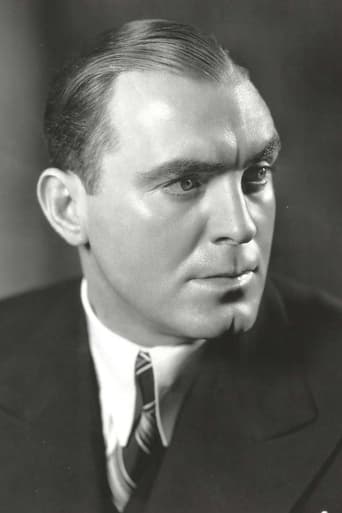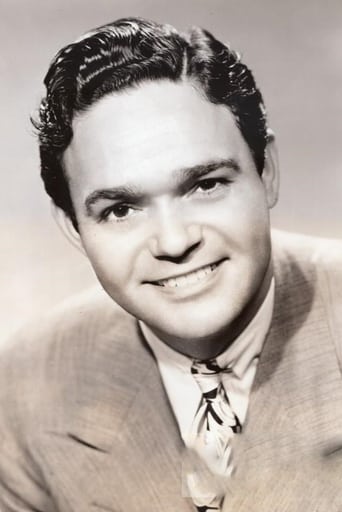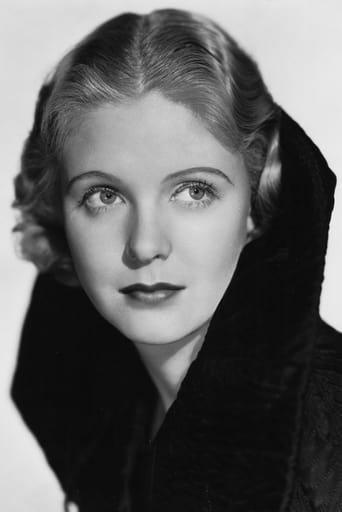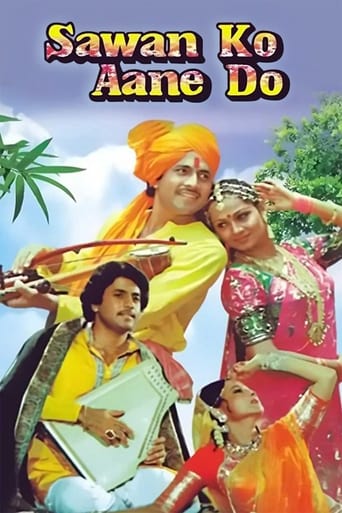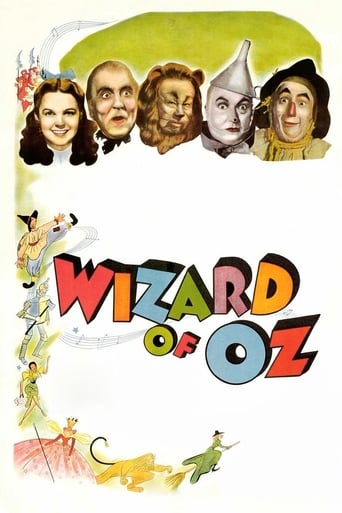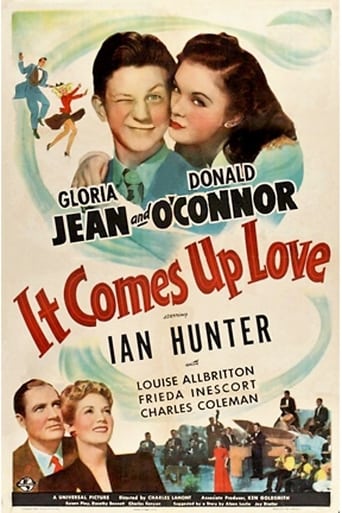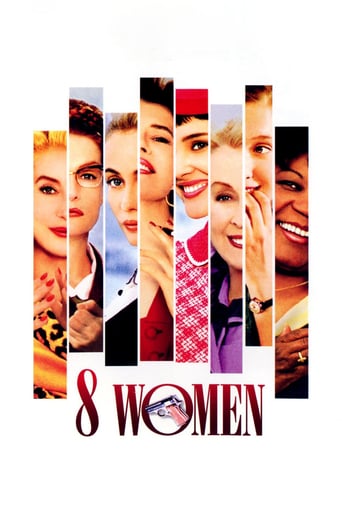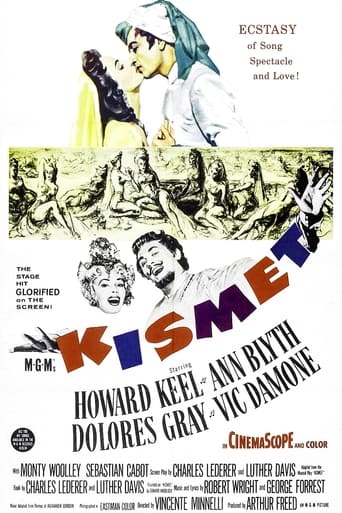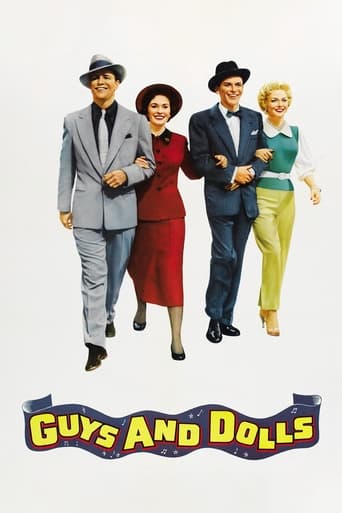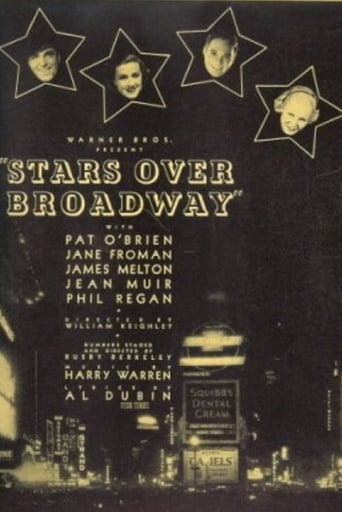

Stars Over Broadway (1935)
An aggressive agent turns a hotel porter into an overnight sensation.
Watch Trailer
Cast


Similar titles
Reviews
Hoary old chestnut about the rush to stardom, losing control when you're at the top and setting things right. If you're a fan of light opera than you'll enjoy Melton's singing but his acting is strictly dinner theatre quality and he photographs like a cross between Dagwood Bumstead and a shiny lemon. Fortunately the film has Pat O'Brien, Frank McHugh and Marie Wilson to inject some life into the proceedings but even with them it's an average affair. The real reason to catch this is the presence of Jane Froman in the cast. The singer famed for her war work and catastrophic accident immortalized in With a Song in My Heart didn't make many films and while this one isn't much she sings beautifully.
Pat O'Brien is a washed up talent manager who meets a singing hotel porter (James Melton) in "Stars Over Broadway," a 1935 film from Warner Brothers. The film also stars Jean Muir and Jane Froman.O'Brien is Al McGillevray, a broke manager, who, as he's contemplating suicide, hears a porter sing and decides to take him on. The tenor's stage name becomes "Jan King," and his rise to fame is a bit too fast. He starts to enjoy his social life and the accompanying alcohol more than the high notes. Adding to the problem is that Al has fallen for an ambitious young singer (Jean Muir) who wants him to manage her.O'Brien does a great job as a man trying to work out his life and what it is that he really wants. The surprise for me here was Jane Froman, whom I only knew from the film "With a Song in My Heart," in which she was portrayed by Susan Hayward. Froman is not only absolutely gorgeous, but her lush voice is equally beautiful (I did at least remember that she was a wonderful singer). In 1943, she was in a horrible plane crash and almost had to have her leg amputated, though she kept on entertaining. Why she wasn't featured in films more before her accident is beyond me.The career trajectory of the tenor in the film actually matches James Melton's, minus the booze. He started out as a popular singer, but during the Depression, his kind of high, bright singing voice went out of style and was replaced by the more baritone sounds from the likes of Bing Crosby and Russ Columbo. Already classically trained, Melton returned to his operatic roots, eventually making his debut at the Metropolitan Opera as Tamino in "The Magic Flute." Tamino would be a signature role for him at the Met, and he also performed the tenor roles in Lucia, Don Giovanni, Mignon, La Traviata, and Madama Butterfly during his 8 years there. Melton continued to have a great career later in concerts and clubs. He was very pleasant looking and a nice personality, so it's no wonder he was picked up for films, however briefly. In the movie, he sings several songs that were mainstays of his concerts as well as "Celeste Aida," in which he sounds fabulous.Entertaining, and if you like beautiful singing, you'll enjoy "Stars Over Broadway."
Only with the demise of the musical film with the studio system did the idea of making popular stars out of opera singers finally die out. During the Thirties there was a flourish by studios to sign opera stars based on the success Grace Moore had in One Night of Love for Columbia.Columbia made a successful opera star film, now everybody got into the act. Twentieth Century Fox signed Lily Pons, Paramount inked Gladys Swarthout, MGM had Lawrence Tibbett for awhile. Nelson Eddy made the only real transition from grand opera to Hollywood. Anyway Warner Brothers signed Metropolitan Opera tenor James Melton and I have to say he had a very pleasant voice and a personality that was easy to take. He's a bellhop who's voice comes over into Pat O'Brien's room as down on his luck theatrical agent O'Brien is contemplating suicide. Not an uncommon thing in the Depression as people became paupers overnight at times. The rest of the film is the trials and tribulations Melton and O'Brien go through. The song Melton sang, Carry Me Back to the Lone Prarie, a cowboy ballad became a staple item during his concerts.Another interesting piece of trivia is that the song September in the Rain was cut from the finished film. You can hear it played in the background. It was sung in another film by James Melton called Melody for Two and became a popular hit for him.Jane Froman is also in the film and it's interesting why she never became a film star, except really in her own autobiographical film, With a Song In My Heart where she sings with Susan Hayward lipsynching. She had the looks and the voice. Who can tell about these things.I recommend this film highly so people can get to hear what a couple of real good singers are like from the thirties. Especially Melton. I happen to have a few recordings of him and he has an infectious lilt in his voice. The only film that's really available for people to see him in is The Ziegfeld Follies where he and Marion Bell sing an aria from La Traviata. It was a good number, but Melton did so much more than that.
This begins with failed agent Pat O'Brien planning his suicide. A porter in his building catches his ear with his cowboy song. Could this be the new star to make his name and fortune? The porter is James Melton, who soon is taken to an operatic vocal coach presciently named Menotti. Menotti sees him as someone who could be a star at the Met with five years of training and Melton's "Celeste Aida" is sung in a fine tenor.O'Brien wants quick results, though, and betrays him, making him a more popular-style singer who can rake in the bucks. He does and stardom goes to his head but he takes to the sauce, betraying O'Brien in return.This is not the first time I've seen O'Brien in a role that suggests gay or closeted gay feelings. The reconciliation between these two is strange indeed for a scene between two men in a mid-thirties movie.O'Brien wants to make a star of Jean Muir, too, but Menotti hears her "Ave Marie" sung in church and doesn't think she has the goods. She and O'Brien end up together but the movie is really about his and Melton's characters.It is dark and quite elegant, a touching movie whose title has little to do with it and is misleading. Perhaps O'Brien smiles once but if so, it is the exception rather than the rule. His performance is subdued and he seems beaten down.


